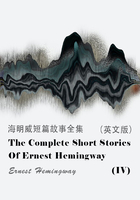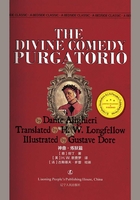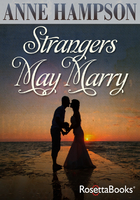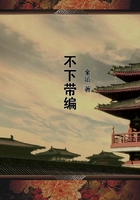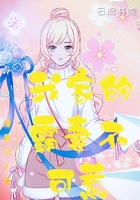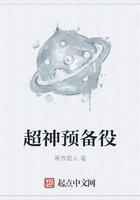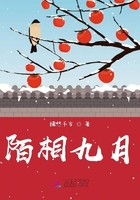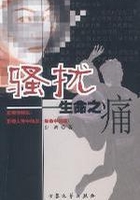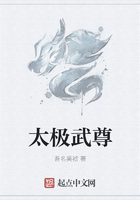That it is at least as difficult to stay a moral infection as a physical one; that such a disease will spread with the malignity and rapidity of the Plague; that the contagion, when it has once made head, will spare no pursuit or condition, but will lay hold on people in the soundest health, and become developed in the most unlikely constitutions: is a fact as firmly established by experience as that we human creatures breathe an atmosphere. A blessing beyond appreciation would be conferred upon mankind, if the tainted, in whose weakness or wickedness these virulent disorders are bred, could be instantly seized and placed in close confinement (not to say summarily smothered) before the poison is communicable.
As a vast fire will fill the air to a great distance with its roar, so the sacred flame which the mighty Barnacles had fanned caused the air to resound more and more with the name of Merdle. It was deposited on every lip, and carried into every ear. There never was, there never had been, there never again should be, such a man as Mr Merdle. Nobody, as aforesaid, knew what he had done; but everybody knew him to be the greatest that had appeared.
Down in Bleeding Heart Yard, where there was not one unappropriated halfpenny, as lively an interest was taken in this paragon of men as on the Stock Exchange. Mrs Plornish, now established in the small grocery and general trade in a snug little shop at the crack end of the Yard, at the top of the steps, with her little old father and Maggy acting as assistants, habitually held forth about him over the counter in conversation with her customers. Mr Plornish, who had a small share in a small builder's business in the neighbourhood, said, trowel in hand, on the tops of scaffolds and on the tiles of houses, that people did tell him as Mr Merdle was the one, mind you, to put us all to rights in respects of that which all on us looked to, and to bring us all safe home as much as we needed, mind you, fur toe be brought. Mr Baptist, sole lodger of Mr and Mrs Plornish was reputed in whispers to lay by the savings which were the result of his simple and moderate life, for investment in one of Mr Merdle's certain enterprises. The female Bleeding Hearts, when they came for ounces of tea, and hundredweights of talk, gave Mrs Plornish to understand, That how, ma'am, they had heard from their cousin Mary Anne, which worked in the line, that his lady's dresses would fill three wagons. That how she was as handsome a lady, ma'am, as lived, no matter wheres, and a busk like marble itself. That how, according to what they was told, ma'am, it was her son by a former husband as was took into the Government; and a General he had been, and armies he had marched again and victory crowned, if all you heard was to be believed. That how it was reported that Mr Merdle's words had been, that if they could have made it worth his while to take the whole Government he would have took it without a profit, but that take it he could not and stand a loss. That how it was not to be expected, ma'am, that he should lose by it, his ways being, as you might say and utter no falsehood, paved with gold; but that how it was much to be regretted that something handsome hadn't been got up to make it worth his while; for it was such and only such that knowed the heighth to which the bread and butchers' meat had rose, and it was such and only such that both could and would bring that heighth down.
So rife and potent was the fever in Bleeding Heart Yard, that Mr Pancks's rent-days caused no interval in the patients. The disease took the singular form, on those occasions, of causing the infected to find an unfathomable excuse and consolation in allusions to the magic name.
'Now, then!' Mr Pancks would say, to a defaulting lodger. 'Pay up!
Come on!'
'I haven't got it, Mr Pancks,' Defaulter would reply. 'I tell you the truth, sir, when I say I haven't got so much as a single sixpence of it to bless myself with.'
'This won't do, you know,' Mr Pancks would retort. 'You don't expect it will do; do you?' Defaulter would admit, with a low-spirited 'No, sir,' having no such expectation.
'My proprietor isn't going to stand this, you know,' Mr Pancks would proceed. 'He don't send me here for this. Pay up! Come!'
The Defaulter would make answer, 'Ah, Mr Pancks. If I was the rich gentleman whose name is in everybody's mouth-if my name was Merdle, sir-I'd soon pay up, and be glad to do it.'
Dialogues on the rent-question usually took place at the house-doors or in the entries, and in the presence of several deeply interested Bleeding Hearts. They always received a reference of this kind with a low murmur of response, as if it were convincing; and the Defaulter, however black and discomfited before, always cheered up a little in making it.
'If I was Mr Merdle, sir, you wouldn't have cause to complain of me then. No, believe me!' the Defaulter would proceed with a shake of the head. 'I'd pay up so quick then, Mr Pancks, that you shouldn't have to ask me.'
The response would be heard again here, implying that it was impossible to say anything fairer, and that this was the next thing to paying the money down.
Mr Pancks would be now reduced to saying as he booked the case, 'Well! You'll have the broker in, and be turned out; that's what'll happen to you. It's no use talking to me about Mr Merdle. You are not Mr Merdle, any more than I am.'
'No, sir,' the Defaulter would reply. 'I only wish you were him, sir.'
The response would take this up quickly; replying with great feeling, 'Only wish you were him, sir.'
'You'd be easier with us if you were Mr Merdle, sir,' the Defaulter would go on with rising spirits, 'and it would be better for all parties. Better for our sakes, and better for yours, too. You wouldn't have to worry no one, then, sir. You wouldn't have to worry us, and you wouldn't have to worry yourself. You'd be easier in your own mind, sir, and you'd leave others easier, too, you would, if you were Mr Merdle.'
Mr Pancks, in whom these impersonal compliments produced an irresistible sheepishness, never rallied after such a charge. He could only bite his nails and puff away to the next Defaulter. The responsive Bleeding Hearts would then gather round the Defaulter whom he had just abandoned, and the most extravagant rumours would circulate among them, to their great comfort, touching the amount of Mr Merdle's ready money.
From one of the many such defeats of one of many rent-days, Mr Pancks, having finished his day's collection, repaired with his note-book under his arm to Mrs Plornish's corner. Mr Pancks's object was not professional, but social. He had had a trying day, and wanted a little brightening. By this time he was on friendly terms with the Plornish family, having often looked in upon them at similar seasons, and borne his part in recollections of Miss Dorrit.
Mrs Plornish's shop-parlour had been decorated under her own eye, and presented, on the side towards the shop, a little fiction in which Mrs Plornish unspeakably rejoiced. This poetical heightening of the parlour consisted in the wall being painted to represent the exterior of a thatched cottage; the artist having introduced (in as effective a manner as he found compatible with their highly disproportionate dimensions) the real door and window. The modest sunflower and hollyhock were depicted as flourishing with great luxuriance on this rustic dwelling, while a quantity of dense smoke issuing from the chimney indicated good cheer within, and also, perhaps, that it had not been lately swept. A faithful dog was represented as flying at the legs of the friendly visitor, from the threshold; and a circular pigeon-house, enveloped in a cloud of pigeons, arose from behind the garden-paling. On the door (when it was shut), appeared the semblance of a brass-plate, presenting the inscription, Happy Cottage, T. and M. Plornish; the partnership expressing man and wife. No Poetry and no Art ever charmed the imagination more than the union of the two in this counterfeit cottage charmed Mrs Plornish. It was nothing to her that Plornish had a habit of leaning against it as he smoked his pipe after work, when his hat blotted out the pigeon-house and all the pigeons, when his back swallowed up the dwelling, when his hands in his pockets uprooted the blooming garden and laid waste the adjacent country. To Mrs Plornish, it was still a most beautiful cottage, a most wonderful deception; and it made no difference that Mr Plornish's eye was some inches above the level of the gable bed-room in the thatch. To come out into the shop after it was shut, and hear her father sing a song inside this cottage, was a perfect Pastoral to Mrs Plornish, the Golden Age revived. And truly if that famous period had been revived, or had ever been at all, it may be doubted whether it would have produced many more heartily admiring daughters than the poor woman.
Warned of a visitor by the tinkling bell at the shop-door, Mrs Plornish came out of Happy Cottage to see who it might be. 'I guessed it was you, Mr Pancks,' said she, 'for it's quite your regular night; ain't it? Here's father, you see, come out to serve at the sound of the bell, like a brisk young shopman. Ain't he looking well? Father's more pleased to see you than if you was a customer, for he dearly loves a gossip; and when it turns upon Miss Dorrit, he loves it all the more. You never heard father in such voice as he is at present,' said Mrs Plornish, her own voice quavering, she was so proud and pleased. 'He gave us Strephon last night to that degree that Plornish gets up and makes him this speech across the table. "John Edward Nandy," says Plornish to father, "I never heard you come the warbles as I have heard you come the warbles this night." Ain't it gratifying, Mr Pancks, though; really?'
Mr Pancks, who had snorted at the old man in his friendliest manner, replied in the affirmative, and casually asked whether that lively Altro chap had come in yet? Mrs Plornish answered no, not yet, though he had gone to the West-End with some work, and had said he should be back by tea-time. Mr Pancks was then hospitably pressed into Happy Cottage, where he encountered the elder Master Plornish just come home from school. Examining that young student, lightly, on the educational proceedings of the day, he found that the more advanced pupils who were in the large text and the letter M, had been set the copy 'Merdle, Millions.'
'And how are you getting on, Mrs Plornish,' said Pancks, 'since we're mentioning millions?'
'Very steady, indeed, sir,' returned Mrs Plornish. 'Father, dear, would you go into the shop and tidy the window a little bit before tea, your taste being so beautiful?'
John Edward Nandy trotted away, much gratified, to comply with his daughter's request. Mrs Plornish, who was always in mortal terror of mentioning pecuniary affairs before the old gentleman, lest any disclosure she made might rouse his spirit and induce him to run away to the workhouse, was thus left free to be confidential with Mr Pancks.
'It's quite true that the business is very steady indeed,' said Mrs Plornish, lowering her voice; 'and has a excellent connection. The only thing that stands in its way, sir, is the Credit.'
This drawback, rather severely felt by most people who engaged in commercial transactions with the inhabitants of Bleeding Heart Yard, was a large stumbling-block in Mrs Plornish's trade. When Mr Dorrit had established her in the business, the Bleeding Hearts had shown an amount of emotion and a determination to support her in it, that did honour to human nature. Recognising her claim upon their generous feelings as one who had long been a member of their community, they pledged themselves, with great feeling, to deal with Mrs Plornish, come what would and bestow their patronage on no other establishment. Influenced by these noble sentiments, they had even gone out of their way to purchase little luxuries in the grocery and butter line to which they were unaccustomed; saying to one another, that if they did stretch a point, was it not for a neighbour and a friend, and for whom ought a point to be stretched if not for such? So stimulated, the business was extremely brisk, and the articles in stock went off with the greatest celerity. In short, if the Bleeding Hearts had but paid, the undertaking would have been a complete success; whereas, by reason of their exclusively confining themselves to owing, the profits actually realised had not yet begun to appear in the books.
Mr Pancks was making a very porcupine of himself by sticking his hair up in the contemplation of this state of accounts, when old Mr Nandy, re-entering the cottage with an air of mystery, entreated them to come and look at the strange behaviour of Mr Baptist, who seemed to have met with something that had scared him. All three going into the shop, and watching through the window, then saw Mr Baptist, pale and agitated, go through the following extraordinary performances. First, he was observed hiding at the top of the steps leading down into the Yard, and peeping up and down the street with his head cautiously thrust out close to the side of the shop-door. After very anxious scrutiny, he came out of his retreat, and went briskly down the street as if he were going away altogether; then, suddenly turned about, and went, at the same pace, and with the same feint, up the street. He had gone no further up the street than he had gone down, when he crossed the road and disappeared. The object of this last manoeuvre was only apparent, when his entering the shop with a sudden twist, from the steps again, explained that he had made a wide and obscure circuit round to the other, or Doyce and Clennam, end of the Yard, and had come through the Yard and bolted in. He was out of breath by that time, as he might well be, and his heart seemed to jerk faster than the little shop-bell, as it quivered and jingled behind him with his hasty shutting of the door.
'Hallo, old chap!' said Mr Pancks. 'Altro, old boy! What's the matter?'
Mr Baptist, or Signor Cavalletto, understood English now almost as well as Mr Pancks himself, and could speak it very well too. Nevertheless, Mrs Plornish, with a pardonable vanity in that accomplishment of hers which made her all but Italian, stepped in as interpreter.
'E ask know,' said Mrs Plornish, 'What go wrong?'
'Come into the happy little cottage, Padrona,' returned Mr Baptist, imparting great stealthiness to his flurried back-handed shake of his right forefinger. 'Come there!'
Mrs Plornish was proud of the title Padrona, which she regarded as signifying: not so much Mistress of the house, as Mistress of the Italian tongue. She immediately complied with Mr Baptist's request, and they all went into the cottage.
'E ope you no fright,' said Mrs Plornish then, interpreting Mr Pancks in a new way with her usual fertility of resource. 'What appen? Peaka Padrona!'
'I have seen some one,' returned Baptist. 'I have rincontrato him.'
'Im? Oo him?' asked Mrs Plornish.
'A bad man. A baddest man. I have hoped that I should never see him again.'
'Ow you know him bad?' asked Mrs Plornish.
'It does not matter, Padrona. I know it too well.'
' 'E see you?' asked Mrs Plornish.
'No. I hope not. I believe not.'
'He says,' Mrs Plornish then interpreted, addressing her father and Pancks with mild condescension, 'that he has met a bad man, but he hopes the bad man didn't see him-Why,' inquired Mrs Plornish, reverting to the Italian language, 'why ope bad man no see?'
'Padrona, dearest,' returned the little foreigner whom she so considerately protected, 'do not ask, I pray. Once again I say it matters not. I have fear of this man. I do not wish to see him, I do not wish to be known of him-never again! Enough, most beautiful. Leave it.'
The topic was so disagreeable to him, and so put his usual liveliness to the rout, that Mrs Plornish forbore to press him further: the rather as the tea had been drawing for some time on the hob. But she was not the less surprised and curious for asking no more questions; neither was Mr Pancks, whose expressive breathing had been labouring hard since the entrance of the little man, like a locomotive engine with a great load getting up a steep incline. Maggy, now better dressed than of yore, though still faithful to the monstrous character of her cap, had been in the background from the first with open mouth and eyes, which staring and gaping features were not diminished in breadth by the untimely suppression of the subject. However, no more was said about it, though much appeared to be thought on all sides: by no means excepting the two young Plornishes, who partook of the evening meal as if their eating the bread and butter were rendered almost superfluous by the painful probability of the worst of men shortly presenting himself for the purpose of eating them. Mr Baptist, by degrees began to chirp a little; but never stirred from the seat he had taken behind the door and close to the window, though it was not his usual place. As often as the little bell rang, he started and peeped out secretly, with the end of the little curtain in his hand and the rest before his face; evidently not at all satisfied but that the man he dreaded had tracked him through all his doublings and turnings, with the certainty of a terrible bloodhound.
The entrance, at various times, of two or three customers and of Mr Plornish, gave Mr Baptist just enough of this employment to keep the attention of the company fixed upon him. Tea was over, and the children were abed, and Mrs Plornish was feeling her way to the dutiful proposal that her father should favour them with Chloe, when the bell rang again, and Mr Clennam came in.
Clennam had been poring late over his books and letters; for the waiting-rooms of the Circumlocution Office ravaged his time sorely.
Over and above that, he was depressed and made uneasy by the late occurrence at his mother's. He looked worn and solitary. He felt so, too; but, nevertheless, was returning home from his counting-house by that end of the Yard to give them the intelligence that he had received another letter from Miss Dorrit.
The news made a sensation in the cottage which drew off the general attention from Mr Baptist. Maggy, who pushed her way into the foreground immediately, would have seemed to draw in the tidings of her Little Mother equally at her ears, nose, mouth, and eyes, but that the last were obstructed by tears. She was particularly delighted when Clennam assured her that there were hospitals, and very kindly conducted hospitals, in Rome. Mr Pancks rose into new distinction in virtue of being specially remembered in the letter. Everybody was pleased and interested, and Clennam was well repaid for his trouble. 'But you are tired, sir. Let me make you a cup of tea,' said Mrs Plornish, 'if you'd condescend to take such a thing in the cottage; and many thanks to you, too, I am sure, for bearing us in mind so kindly.'
Mr Plornish deeming it incumbent on him, as host, to add his personal acknowledgments, tendered them in the form which always expressed his highest ideal of a combination of ceremony with sincerity.
'John Edward Nandy,' said Mr Plornish, addressing the old gentleman. 'Sir. It's not too often that you see unpretending actions without a spark of pride, and therefore when you see them give grateful honour unto the same, being that if you don't, and live to want 'em, it follows serve you right.'
To which Mr Nandy replied:
'I am heartily of your opinion, Thomas, and which your opinion is the same as mine, and therefore no more words and not being backwards with that opinion, which opinion giving it as yes, Thomas, yes, is the opinion in which yourself and me must ever be unanimously jined by all, and where there is not difference of opinion there can be none but one opinion, which fully no, Thomas, Thomas, no?!'
Arthur, with less formality, expressed himself gratified by their high appreciation of so very slight an attention on his part; and explained as to the tea that he had not yet dined, and was going straight home to refresh after a long day's labour, or he would have readily accepted the hospitable offer. As Mr Pancks was somewhat noisily getting his steam up for departure, he concluded by asking that gentleman if he would walk with him? Mr Pancks said he desired no better engagement, and the two took leave of Happy Cottage.
'If you will come home with me, Pancks,' said Arthur, when they got into the street, 'and will share what dinner or supper there is, it will be next door to an act of charity; for I am weary and out of sorts to-night.'
'Ask me to do a greater thing than that,' said Pancks, 'when you want it done, and I'll do it.'
Between this eccentric personage and Clennam, a tacit understanding and accord had been always improving since Mr Pancks flew over Mr Rugg's back in the Marshalsea Yard. When the carriage drove away on the memorable day of the family's departure, these two had looked after it together, and had walked slowly away together. When the first letter came from little Dorrit, nobody was more interested in hearing of her than Mr Pancks. The second letter, at that moment in Clennam's breast-pocket, particularly remembered him by name. Though he had never before made any profession or protestation to Clennam, and though what he had just said was little enough as to the words in which it was expressed, Clennam had long had a growing belief that Mr Pancks, in his own odd way, was becoming attached to him. All these strings intertwining made Pancks a very cable of anchorage that night.
'I am quite alone,' Arthur explained as they walked on. 'My partner is away, busily engaged at a distance on his branch of our business, and you shall do just as you like.'
'Thank you. You didn't take particular notice of little Altro just now; did you?' said Pancks.
'No. Why?'
'He's a bright fellow, and I like him,' said Pancks. 'Something has gone amiss with him to-day. Have you any idea of any cause that can have overset him?'
'You surprise me! None whatever.'
Mr Pancks gave his reasons for the inquiry. Arthur was quite unprepared for them, and quite unable to suggest an explanation of them.
'Perhaps you'll ask him,' said Pancks, 'as he's a stranger?'
'Ask him what?' returned Clennam.
'What he has on his mind.'
'I ought first to see for myself that he has something on his mind, I think,' said Clennam. 'I have found him in every way so diligent, so grateful (for little enough), and so trustworthy, that it might look like suspecting him. And that would be very unjust.'
'True,' said Pancks. 'But, I say! You oughtn't to be anybody's proprietor, Mr Clennam. You're much too delicate.'
'For the matter of that,' returned Clennam laughing, 'I have not a large proprietary share in Cavalletto. His carving is his livelihood. He keeps the keys of the Factory, watches it every alternate night, and acts as a sort of housekeeper to it generally; but we have little work in the way of his ingenuity, though we give him what we have. No! I am rather his adviser than his proprietor. To call me his standing counsel and his banker would be nearer the fact. Speaking of being his banker, is it not curious, Pancks, that the ventures which run just now in so many people's heads, should run even in little Cavalletto's?'
'Ventures?' retorted Pancks, with a snort. 'What ventures?'
'These Merdle enterprises.'
'Oh! Investments,' said Pancks. 'Ay, ay! I didn't know you were speaking of investments.' His quick way of replying caused Clennam to look at him, with a doubt whether he meant more than he said. As it was accompanied, however, with a quickening of his pace and a corresponding increase in the labouring of his machinery, Arthur did not pursue the matter, and they soon arrived at his house.
A dinner of soup and a pigeon-pie, served on a little round table before the fire, and flavoured with a bottle of good wine, oiled Mr Pancks's works in a highly effective manner; so that when Clennam produced his Eastern pipe, and handed Mr Pancks another Eastern pipe, the latter gentleman was perfectly comfortable.
They puffed for a while in silence, Mr Pancks like a steam-vessel with wind, tide, calm water, and all other sea-going conditions in her favour. He was the first to speak, and he spoke thus:
'Yes. Investments is the word.'
Clennam, with his former look, said 'Ah!'
'I am going back to it, you see,' said Pancks.
'Yes. I see you are going back to it,' returned Clennam, wondering why.
'Wasn't it a curious thing that they should run in little Altro's head? Eh?' said Pancks as he smoked. 'Wasn't that how you put it?'
'That was what I said.'
'Ay! But think of the whole Yard having got it. Think of their all meeting me with it, on my collecting days, here and there and everywhere. Whether they pay, or whether they don't pay. Merdle, Merdle, Merdle. Always Merdle.'
'Very strange how these runs on an infatuation prevail,' said Arthur.
'Ain't it?' returned Pancks. After smoking for a minute or so, more drily than comported with his recent oiling, he added: 'Because you see these people don't understand the subject.'
'Not a bit,' assented Clennam.
'Not a bit,' cried Pancks. 'Know nothing of figures. Know nothing of money questions. Never made a calculation. Never worked it, sir!'
'If they had-' Clennam was going on to say; when Mr Pancks, without change of countenance, produced a sound so far surpassing all his usual efforts, nasal or bronchial, that he stopped.
'If they had?' repeated Pancks in an inquiring tone.
'I thought you-spoke,' said Arthur, hesitating what name to give the interruption.
'Not at all,' said Pancks. 'Not yet. I may in a minute. If they had?'
'If they had,' observed Clennam, who was a little at a loss how to take his friend, 'why, I suppose they would have known better.'
'How so, Mr Clennam?' Pancks asked quickly, and with an odd effect of having been from the commencement of the conversation loaded with the heavy charge he now fired off. 'They're right, you know. They don't mean to be, but they're right.'
'Right in sharing Cavalletto's inclination to speculate with Mr Merdle?'
'Per-fectly, sir,' said Pancks. 'I've gone into it. I've made the calculations. I've worked it. They're safe and genuine.' Relieved by having got to this, Mr Pancks took as long a pull as his lungs would permit at his Eastern pipe, and looked sagaciously and steadily at Clennam while inhaling and exhaling too.
In those moments, Mr Pancks began to give out the dangerous infection with which he was laden. It is the manner of communicating these diseases; it is the subtle way in which they go about.
'Do you mean, my good Pancks,' asked Clennam emphatically, 'that you would put that thousand pounds of yours, let us say, for instance, out at this kind of interest?'
'Certainly,' said Pancks. 'Already done it, sir.'
Mr Pancks took another long inhalation, another long exhalation, another long sagacious look at Clennam.
'I tell you, Mr Clennam, I've gone into it,' said Pancks. 'He's a man of immense resources-enormous capital-government influence. They're the best schemes afloat. They're safe. They're certain.'
'Well!' returned Clennam, looking first at him gravely and then at the fire gravely. 'You surprise me!'
'Bah!' Pancks retorted. 'Don't say that, sir. It's what you ought to do yourself! Why don't you do as I do?'
Of whom Mr Pancks had taken the prevalent disease, he could no more have told than if he had unconsciously taken a fever. Bred at first, as many physical diseases are, in the wickedness of men, and then disseminated in their ignorance, these epidemics, after a period, get communicated to many sufferers who are neither ignorant nor wicked. Mr Pancks might, or might not, have caught the illness himself from a subject of this class; but in this category he appeared before Clennam, and the infection he threw off was all the more virulent.
'And you have really invested,' Clennam had already passed to that word, 'your thousand pounds, Pancks?'
'To be sure, sir!' replied Pancks boldly, with a puff of smoke. 'And only wish it ten!'
Now, Clennam had two subjects lying heavy on his lonely mind that night; the one, his partner's long-deferred hope; the other, what he had seen and heard at his mother's. In the relief of having this companion, and of feeling that he could trust him, he passed on to both, and both brought him round again, with an increase and acceleration of force, to his point of departure.
It came about in the simplest manner. Quitting the investment subject, after an interval of silent looking at the fire through the smoke of his pipe, he told Pancks how and why he was occupied with the great National Department. 'A hard case it has been, and a hard case it is on Doyce,' he finished by saying, with all the honest feeling the topic roused in him.
'Hard indeed,' Pancks acquiesced. 'But you manage for him, Mr Clennam?'
'How do you mean??'
'Manage the money part of the business?'
'Yes. As well as I can.'
'Manage it better, sir,' said Pancks. 'Recompense him for his toils and disappointments. Give him the chances of the time. He'll never benefit himself in that way, patient and preoccupied workman. He looks to you, sir.'
'I do my best, Pancks,' returned Clennam, uneasily. 'As to duly weighing and considering these new enterprises of which I have had no experience, I doubt if I am fit for it, I am growing old.'
'Growing old?' cried Pancks. 'Ha, ha!'
There was something so indubitably genuine in the wonderful laugh, and series of snorts and puffs, engendered in Mr Pancks's astonishment at, and utter rejection of, the idea, that his being quite in earnest could not be questioned.
'Growing old?' cried Pancks. 'Hear, hear, hear! Old? Hear him, hear him!'
The positive refusal expressed in Mr Pancks's continued snorts, no less than in these exclamations, to entertain the sentiment for a single instant, drove Arthur away from it. Indeed, he was fearful of something happening to Mr Pancks in the violent conflict that took place between the breath he jerked out of himself and the smoke he jerked into himself. This abandonment of the second topic threw him on the third.
'Young, old, or middle-aged, Pancks,' he said, when there was a favourable pause, 'I am in a very anxious and uncertain state; a state that even leads me to doubt whether anything now seeming to belong to me, may be really mine. Shall I tell you how this is? Shall I put a great trust in you?'
'You shall, sir,' said Pancks, 'if you believe me worthy of it.'
'I do.'
'You may!' Mr Pancks's short and sharp rejoinder, confirmed by the sudden outstretching of his coaly hand, was most expressive and convincing. Arthur shook the hand warmly.
He then, softening the nature of his old apprehensions as much as was possible consistently with their being made intelligible and never alluding to his mother by name, but speaking vaguely of a relation of his, confided to Mr Pancks a broad outline of the misgivings he entertained, and of the interview he had witnessed. Mr Pancks listened with such interest that, regardless of the charms of the Eastern pipe, he put it in the grate among the fire-irons, and occupied his hands during the whole recital in so erecting the loops and hooks of hair all over his head, that he looked, when it came to a conclusion, like a journeyman Hamlet in conversation with his father's spirit.
'Brings me back, sir,' was his exclamation then, with a startling touch on Clennam's knee, 'brings me back, sir, to the Investments! I don't say anything of your making yourself poor to repair a wrong you never committed. That's you. A man must be himself. But I say this, fearing you may want money to save your own blood from exposure and disgrace-make as much as you can!'
Arthur shook his head, but looked at him thoughtfully too.
'Be as rich as you can, sir,' Pancks adjured him with a powerful concentration of all his energies on the advice. 'Be as rich as you honestly can. It's your duty. Not for your sake, but for the sake of others. Take time by the forelock. Poor Mr Doyce (who really is growing old) depends upon you. Your relative depends upon you. You don't know what depends upon you.'
'Well, well, well!' returned Arthur. 'Enough for to-night.'
'One word more, Mr Clennam,' retorted Pancks, 'and then enough for to-night. Why should you leave all the gains to the gluttons, knaves, and impostors? Why should you leave all the gains that are to be got to my proprietor and the like of him? Yet you're always doing it. When I say you, I mean such men as you. You know you are. Why, I see it every day of my life. I see nothing else. It's my business to see it. Therefore I say,' urged Pancks, 'Go in and win!'
'But what of Go in and lose?' said Arthur.
'Can't be done, sir,' returned Pancks. 'I have looked into it. Name up everywhere-immense resources-enormous capital-great position-high connection-government influence. Can't be done!'
Gradually, after this closing exposition, Mr Pancks subsided; allowed his hair to droop as much as it ever would droop on the utmost persuasion; reclaimed the pipe from the fire-irons, filled it anew, and smoked it out. They said little more; but were company to one another in silently pursuing the same subjects, and did not part until midnight. On taking his leave, Mr Pancks, when he had shaken hands with Clennam, worked completely round him before he steamed out at the door. This, Arthur received as an assurance that he might implicitly rely on Pancks, if he ever should come to need assistance; either in any of the matters of which they had spoken that night, or any other subject that could in any way affect himself.
At intervals all next day, and even while his attention was fixed on other things, he thought of Mr Pancks's investment of his thousand pounds, and of his having 'looked into it.' He thought of Mr Pancks's being so sanguine in this matter, and of his not being usually of a sanguine character. He thought of the great National Department, and of the delight it would be to him to see Doyce better off. He thought of the darkly threatening place that went by the name of Home in his remembrance, and of the gathering shadows which made it yet more darkly threatening than of old. He observed anew that wherever he went, he saw, or heard, or touched, the celebrated name of Merdle; he found it difficult even to remain at his desk a couple of hours, without having it presented to one of his bodily senses through some agency or other. He began to think it was curious too that it should be everywhere, and that nobody but he should seem to have any mistrust of it. Though indeed he began to remember, when he got to this, even he did not mistrust it; he had only happened to keep aloof from it.
Such symptoms, when a disease of the kind is rife, are usually the signs of sickening.



